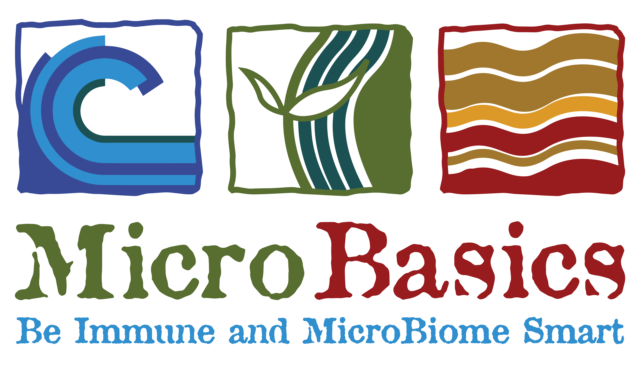Because of the added stress, it’s even more important this year for producers to set up a scours prevention program in their herds.
An increase in scours is a concern for multiple reasons, including dehydration, the potential of reduced weaning weights and the possibility of increased pathogen loads in the herd.
Not to mention how it limits the calf’s ability to meet its genetic potential. Each of these concerns stands to have a major impact on the bottom line of any operation.
Dehydration can cause a calf to lose 10 to 12 percent of its bodyweight in water losses. This weight loss has been shown to decrease immunity to pathogens and often can be deadly.
Scours increases pathogen loads and can put the health of the entire herd at risk. The problem is exacerbated when newborn calves are born into pathogen-loaded areas.
Weaning weights are an even bigger concern. According to work done over a 14-year period at Montana State University, calves that had scours weighed 458 pounds at weaning, while non-scouring calves weighed 478 pounds.
With corn prices continuing to rise and feeder calf prices nearing $1.50 a pound at weaning, each marketable pound can impact an operation’s finances.
Luckily, tools are available on the market to help combat scours before the problem gets out of hand.
Pre-calving vaccination, newborn calf scours vaccines and immediate- protection antibodies are proven tools to help newborn calves transition into life smoothly so they can excel in the pasture and through weaning.
Pre-calving vaccination
Calves are born with naïve immune systems and need to consume antibodies in colostrum to receive protection. Antibodies are generated by a healthy cow as a result of everyday exposure to infectious agents.
The cow’s natural antibodies to these infectious agents are passed from the cow to the calf through colostrum. The level of antibodies transmitted from the cow through the colostrum can be elevated by a pre-calving vaccination program.
In order for a pre-calving vaccination program to be successful, though, a cow must mount an immune response to the vaccine. This requires a healthy dam, which has been fed at a proper nutrition level in the critical period leading up to calving.
While this is every producer’s goal, feed conditions, age of the dam and weather can cause considerable differences in the herd’s state of nutrition and the individual cow’s health status, even within the same herd.
Heat and drought stress on pastured cattle this summer could further result in reduced response to pre-calving vaccination programs.
Outside the nutrition status of the animal, other variables may cause vaccines to fail and impact the immune response of the cow. It’s important to realize that administering a vaccine does not guarantee success.
If the cow does not mount an immune response, or if her immune response is compromised in any way, the amount of antibodies available to pass along to the calf through the colostrum quality is diminished. Even with healthy, well-nourished cows, colostrum quality can be variable.
Relying solely on a pre-calving vaccination program to provide protection to calves may be putting all of the operation’s eggs in one basket.
Newborn calf scours vaccines
Some scours vaccines given to the calf at birth require a delay in colostrum feeding. The delay in colostrum feeding is necessary because, if the vaccine was administered at the same time as colostrum, the maternal antibodies in the colostrum would neutralize the vaccine and compromise the immune response.
Immunity obtained through a scours vaccine is also not immediate, as the newborn calf must respond to the vaccine to develop antibodies, and this takes time.
A delay in colostrum feeding for a vaccination regimen can put the calf at serious risk. In fact, delaying colostrum feeding for any reason is inherently a bad idea since consumption of maternal antibodies immediately after birth is the most important step to obtain passive immunity.
Failure of passive transfer has been linked to increased neonatal morbidity and mortality and long-term decreases in productivity.
Immediate-protection antibodies
Antibody products do not require the cow or calf to react to a vaccine in order to develop antibodies and do not require a delay in colostrum feeding.
Rather, the antibodies are already present, measured and verified to be at a high enough level to protect the calf from scours-related diseases and they can be fed as close to birth as possible.
USDA-approved antibody products are available on the market that can be fed in conjunction with colostrum. The products are proven to provide the calf with immediate immunity and protection from both K99+ E. coli and coronavirus.
After being fed to the newborn calf, these antibodies travel to the gut and immediately bind and neutralize diarrhea antigens, while also being absorbed into the bloodstream for extended protection.
Antibody products complement colostrum feeding programs, as they can be fed at the same time as colostrum. These products are available in bolus, gel and powder form and are included in some colostrum replacer and supplement formulas for added value.
Because the first few hours of a calf’s life can impact the calf’s future growth, health and longevity, a program should be in place to deliver immediate protection to each calf within hours after birth.
The best programs reduce labor, decrease pathogen risk and minimize subsequent treatment costs.
With the added stress of this summer’s drought possibly preempting protection of vaccines, immediate-protection antibodies could be the solution to newborn calf protection.
Working closely with a veterinary professional or animal health specialist to develop an appropriate calf disease prevention program that provides immediate immunity is strongly advised.







